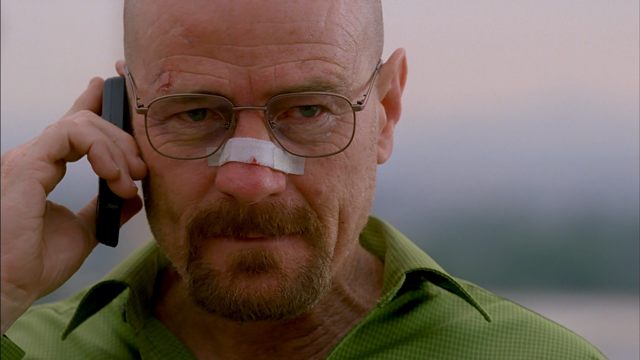The Phrase ‘Breaking Bad’ Has More Than 1 Meaning
Breaking Bad is considered one of the greatest television dramas ever created. The show spanned 5 incredible seasons and over that time, told the complete story of a man who gradually transformed from an average high school chemistry teacher into a drug kingpin hellbent on dominating his industry.
Most fans don’t stop to think too hard about the name of the series. But like everything else on the award-winning AMC drama, the selection of the title Breaking Bad was both significant and intentional.
Vince Gilligan had specific goals for Walter White

The show’s creator Vince Gilligan revealed his vision for Breaking Bad from early on was transforming “Mr. Chips into Scarface.”
Film buffs probably remember that Mr. Chips was a kindly English schoolteacher in the 1939 movie Goodbye, Mr. Chips, which was based on the book by the same name. Arthur Chipping (whose students gave him the nickname “Mr. Chips”) is disciplined in the classroom and finds his life fulfillment in teaching at an all-boys boarding school.
Meanwhile, Scarface is a very different film. The 1983 crime drama follows Tony Montana (Al Pacino), a.k.a. Scarface, as he murders anyone who stands in his way to become the biggest drug lord in the state. Eventually, his quest for power and drug-fueled paranoia become his downfall.
Based on the events of Breaking Bad, plus comparing the Walter White from the first season to Heisenberg in the finale, it’s clear that Gilligan achieved his goal.
What does ‘breaking bad’ technically mean?
Time reported that the phrase “breaking bad” has more than one meaning.
They called it, “a Southern regionalism from the area in Virginia from which [Gilligan] hails. It means ‘to raise hell,’ as in ‘I was out the other night at the bar…and I really broke bad.’”
But Gilligan used it in a more violent way when he decided to name his series. Even though breaking bad was commonly used in his hometown, the showrunner’s definition more closely aligns with Urban Dictionary, which describes breaking bad as to “go wild,” to “defy authority” and to break the law.
Someone who broke bad might be verbally “combative, belligerent, or threatening.” Plus, breaking bad on someone means you’ve “completely dominated or humiliated” them.
Walter White became the antihero
Plenty of shows have tried to mimic what Breaking Bad appeared to do so effortlessly, which is to turn the protagonist of the story into the antihero. Audiences start out rooting for Walter White and hoping he could fulfill his noble task of providing for his family before he died. His methods, however, make it impossible for anyone to stay on his side by the end.
Walt’s business partner Jesse Pinkman represents a moral opposite who fails to embrace the “ends justify the means” approach Walt adopts. By the end of the series, Walt is willing to stop at nothing to achieve total dominance in the drug game. Jesse, meanwhile, internally struggles with guilt over the crimes he commits.
In the final season, Walt finally admits that he continued pursuing power and money not for his family, but for himself. It’s probably the most self-aware moment of the entire series and proves that Gilligan achieved his goal. Heisenberg was on the same level as Scarface in the end.


